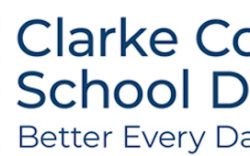About 50 people attended a question-and-answer session with Clarke County School Superintendent Demond Means at Gaines Elementary School on Monday, Dec. 3, where much of the discussion focused on whether students with behavioral problems are disrupting classrooms, specifically at Whit Davis Elementary.
One mother told Means that her 8-year-old son is scared to go to school because of another child’s outbursts. “It’s like a Benny Hill movie” when teachers and administrators chase after him, she said. Meanwhile, she said the other 20 students are “evacuated” to another room that’s not equipped for teaching, where they watch cartoons until the situation is resolved. Another woman who identified herself as a substitute teacher said students have screamed at her and thrown chairs.
Means said students with individual education plans (IEPs)—which can include those with autism, a learning disorder or a physical disability in addition to those with emotional or behavioral disorders—must be in the “least restrictive environment,” which usually means an ordinary classroom. “At what point do you say you tried and move on to Plan B, or in some cases Plan C?”
Means acknowledged that watching a student act out can be “jarring” for other students, but said there’s also a flip side: While he hears from (usually white) parents about classroom disruption, some parents of color want to know why students with IEPs are disproportionately black boys. He attributed the disparity to trauma experienced in the home and said teachers are undergoing professional development to learn how to “connect with” students from low-income and minority families, while also setting high expectations for those students.
“We talk about building that social/emotional capacity of kids,” he said. “Do we need to step back and talk about the social/emotional capacity of the organization?”
The issue of discipline is intertwined with teacher retention, as some attendees asked Means why so many teachers—about 15 percent last year—are leaving the district. Means said he wants to see exit-interview data, but added that Clarke County is a hard district to teach in because of its diverse demographics and isn’t for everyone.
“Literally, the statement has been, ‘I can’t reach these kids.’ So I think it’s a two-way street when we talk about capacity,” he said. “You have to be resilient and ready to persist in a district like this.”
Concerning capacity, Means assured attendees that the district has plenty of resources, despite recent expenditures on AVID (Advancement Via Individual Determination) training and University of Virginia consultants. For example, Whit Davis has added a second behavioral specialist, he said.
“If there’s a request for staff, we’ll provide the staff,” he said. “Sometimes, it comes down to, it’s difficult to hire people and get them to come to Clarke County.”
At another town hall meeting the following day at Oglethorpe Avenue Elementary, parents and teachers asked about rumors that Means is considering dismantling advanced and accelerated classes in middle and high schools. Were that to happen, parent Katrina Evans told Means, families would pull their children out of public school, and teachers would leave the district for jobs elsewhere.
Means denied the rumor. He said he is concerned about whether the district is serving all children, noting, as he has many times before, that while 49 percent of the students are African American, less than 5 percent of those in gifted classes are African American. He wants to make sure all children are exposed to “rigorous academic instruction.” He said he doesn’t want to “live in a world of rumors,” suggesting that parents first discuss their concerns with the principal of their child’s school before going further.
Another parent said that the International Baccalaureate program was academically rigorous and it was eliminated. Means said when he arrived in August of 2017, he asked whether the program was being implemented with a necessary level of rigor, adding that a group of teacher leaders and community members decided to end it. The IB program had no high-school component and no metric for measuring its middle-school success.
A parent asked if the AVID methodology was brought in to replace the IB program. Means said that 18 of 21 schools bought in to AVID. He touted the program as helping teachers, and said he has walked by classrooms and seen teachers in every class teaching in an “equitable, interactive way,” and also has seen changes in young people. Teachers who engage in AVID “say it’s changing them,” Means said.
Neither Clarke Central High School nor Chase Street Elementary is following AVID. Earlier this month, state Superintendent Richard Woods said that Chase Street Elementary was among the highest performing Title I (high poverty) schools in the state.
A parent said he has talked with teachers who say they hate AVID, but that people are scared to express negative opinions, fearing they will lose their jobs. Means suggested the teachers talk to their principals about their concerns.
The superintendent wants the district to become more data driven. As part of that push, his administration has spent $2.5 million on an English Language Arts curriculum for the system’s 14 elementary schools. When he arrived in Athens, he was surprised to learn schools were using different reading programs. Now Means is turning his attention to the district’s math program, with the goal of students receiving “rigorous instruction.”
Means also said that with the district’s $1.2 million surplus, his administration has hired an additional 11 or 12 teachers. Also being hired are more social workers, psychologists and counselors for schools to help children succeed socially and academically.
Like what you just read? Support Flagpole by making a donation today. Every dollar you give helps fund our ongoing mission to provide Athens with quality, independent journalism.










